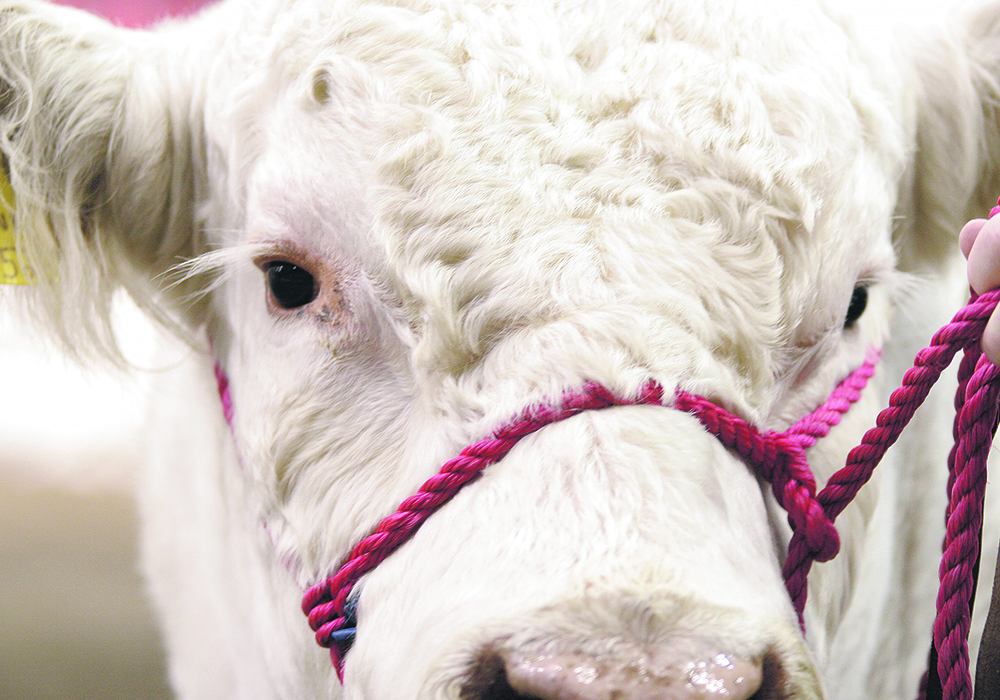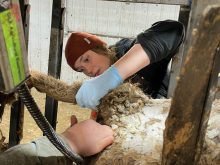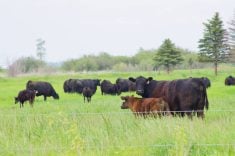It is obvious to anyone who spends time with animals that each is an individual with a unique personality.
Experts define personality as an individual’s behavioural traits that are related and remain unchanged throughout time and situations. The term is sometimes used interchangeably or slightly differently than temperament.
As with many things in science, personality is better understood in people. Researchers are able to ask people questions to gain insight into their thoughts and motivations.
Read Also

Trump’s tariffs take their toll on U.S. producers
U.S. farmers say Trump’s tariffs have been devastating for growers in that country.
With animals, we can’t do this directly and instead rely on outward expressions of behaviour, or in some cases, the observations of caregivers. Much of the work to understand personality in animals has been done on short-lived laboratory species such as mice and rats.
Scientists use a few common behaviour tests to assess personality traits.
The chute score is one of these that is often used for cattle. Individual cattle are loaded into a standard handling chute and assigned a score based on their behaviour.
Along the five point scale, a score of one is given to cattle that exhibit calm demeanor with no movement or vocalizations, while a score of five is given for violent thrashing, continual movement and vocalizations.
Another common test is the novel object test. A new object is introduced to the animal, and its reaction is assessed.
For instance, a large yoga ball is rolled into an arena with a loose horse. Some horses will immediately snort and spook to avoid the ball, while others may be curious and approach and touch the object with their muzzle.
As with any behavioural topic, there is tension between nature versus nurture. What parts of an animal’s personality can be attributed to genetic predisposition and which to its experience? Sometimes this is impossible to parse out.
Take for instance a mare and foal pair. A mare that startles easily and is difficult to catch may have a reactive personality type. The foal will be with her when she reacts strongly to environmental sounds and sights.
However, when her foal goes on to develop similar behaviours, it is impossible to know for sure what is learned from the dam and what traits were inherited.
Studies suggest that personality is inherited at a mild to moderate degree. And because it can be inherited, breeders can select for positive personality traits.
This difference is evident in horse breeds: Quarter horses and draft breeds tend to be less nervous and less excitable than breeds such as thoroughbreds and Arabians.
There is evidence in animals that personality can affect health. The mechanism for this relationship involves the interconnection between behavioural traits and stress and immune responses.
For instance, animals that are afraid of new things (termed neophobic) may produce increased stress hormones in certain environments.
Imagine how a shy versus bold calf would experience being trucked, moved through an auction mart and then mixed with strange animals in a feedlot setting.
The shy calf would be expected to have higher stress hormones compared to the calm calf. Stress would negatively impact its immune response to factors such as respiratory viruses.
It is reasonable to consider personality when training and handling our various animal species. The nervous horse would benefit from time spent desensitizing it to new things. The three most reactive cows in the herd might do better with a few extra minutes to navigate the chute system.
Personality in animals can affect how we interact with them. Safer handling, better growth in modern production systems and improved welfare are a few examples of preferred outcomes when personality matches the situations in which we put animals.
Among the many considerations for choosing which animals to breed, such as growth, production, performance in horses and conformation, it is worth adding personality traits to the list.
Dr. Jamie Rothenburger, DVM, MVetSc, PhD, DACVP, is a veterinarian who practices pathology and is an assistant professor at the University of Calgary’s Faculty of Veterinary Medicine. X: @JRothenburger















